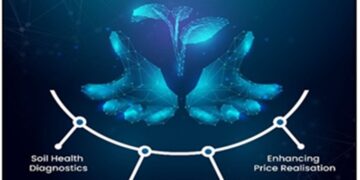By: Dipak Kurmi
In the complex tapestry of human existence, a stark dichotomy emerges: while the animal kingdom operates on instinct and survival, human societies grapple with a spectrum of moral dilemmas and ethical transgressions. From petty misdemeanors to heinous crimes such as murder and sexual assault, humans exhibit a troubling propensity for misdeeds that seems inherent to our nature. Unlike animals, who rely on instinctual behaviors, humans require guidance to instill a sense of ethics, morals, and integrity. Yet, in contemporary society, the absence of role models—be it educators or leaders—has led to a disheartening reality where the value of ethics often pales in comparison to the allure of material wealth.
The Diminishing Role of Educators and Parents
Historically, education has served as the bedrock for cultivating values and ethical conduct among the youth. However, the modern educational landscape lacks charismatic figures who can inspire students to prioritize integrity over material possessions. Today’s educators often face overwhelming challenges, leaving little time to impart the crucial lessons of morality and ethical behavior. Simultaneously, parents, preoccupied with their own lives, often neglect the responsibility of instilling values in their children. The irony lies in the fact that parents can only teach what they themselves practice; without embodying ethical principles, their teachings risk becoming hollow and ineffective.
This disconnect raises a critical question: has moral education lost its roots, relevance, and utility in contemporary society? If values are perceived as lacking intrinsic worth, what motivation exists for their practice? The erosion of moral education is further compounded by a judicial system plagued by delays, inefficiencies, and perceived inequities. The rich often evade justice through financial clout, while the underprivileged bear the brunt of a system that seems increasingly rigged against them. As citizens grow accustomed to a reality fraught with crime, corruption, and brutality, these behaviors become normalized, undermining the very fabric of society.
The Evolutionary Advantage: A Double-Edged Sword
Humans possess the largest brain-to-body ratio among mammals, and our unique physical capabilities—such as flexible hands and fine eyesight—have propelled us to unprecedented heights of scientific and technological achievement. The advent of agriculture approximately 15,000 years ago catalyzed the formation of settlements and complex social structures. As societies expanded, competition for resources intensified, necessitating cooperation and mutual understanding to mitigate conflicts.
However, unlike the slow biological evolution observed in nature, humans have undergone a rapid social evolution, driven by cultural shifts, religious influences, and varying lifestyles. While this social evolution has equipped humans with the ability to direct their own progress, it has also led to a deterioration of ethical standards. Despite our intellectual superiority, humans often succumb to base instincts, driven by greed, arrogance, and a tendency toward selfish behavior. These traits, which animals do not exhibit, proliferate in the absence of effective control mechanisms and the threat of punishment.
The Consequences of Power and Status
In modern society, the prevalence of unethical behavior is often most pronounced among those in positions of power and privilege. Individuals wielding influence and status frequently violate societal norms, from traffic laws to grave criminal acts. This culture of impunity highlights a pressing need for well-defined and rigorously enforced codes of conduct to protect the safety and welfare of all citizens.
Yet, a paradox emerges: adhering to rules necessitates a restriction of individual freedoms, clashing with humanity’s intrinsic desire for liberty. The concept of freedom is frequently misconstrued, leading to the belief that individual liberties should be unfettered. In reality, true freedom in a democratic society is predicated on the understanding that individual rights must be balanced with collective responsibility. For social liberty to flourish, individual freedoms must sometimes be curtailed, particularly in the interest of public safety.
The Imperative for Zero Tolerance
In a society that increasingly grapples with crime and moral decay, a paradigm shift is required. The principle of zero tolerance towards crime is not merely a punitive measure; it represents a fundamental commitment to upholding societal values and ensuring justice for all. Stricter enforcement of laws and codes of conduct can deter undesirable behaviors and foster a culture of accountability.
The wisdom embedded in ancient Indian scriptures emphasizes the fear of divine retribution and respect for ethical practices. These teachings aim to guide human consciousness toward righteousness, advocating for a life anchored in values. However, the effectiveness of such teachings hinges on societal preparedness to embrace and practice ethics.
The Role of Governance and Political Will
The alarming rise in crime and unethical behavior necessitates an unwavering commitment from law enforcement agencies to implement and uphold codes of conduct. It is imperative to address these societal ills for the collective benefit of humanity, particularly within the context of India—one of the world’s oldest civilizations. However, a significant challenge remains: political will.
Are our political leaders equipped to tackle the rampant crime and restore ethical governance? The answer lies in their willingness to prioritize public welfare over personal or political gain. Sustaining the positive image of India requires not only effective governance but also a cultural renaissance that reinstates values at the forefront of society.
The struggle against crime and the erosion of ethical values in modern society is a multifaceted challenge. While humans possess unparalleled cognitive abilities and evolutionary advantages, the darker aspects of our nature often overshadow our potential for good. A comprehensive approach—rooted in education, parental guidance, effective law enforcement, and political will—is essential to reclaim the ethical standards that are fundamental to a harmonious society. By fostering a culture of integrity and accountability, we can work toward a future where values truly outweigh valuables, ensuring that the principles of justice and morality prevail.
The writer can be reached at dipakkurmiglpltd@gmail.com



